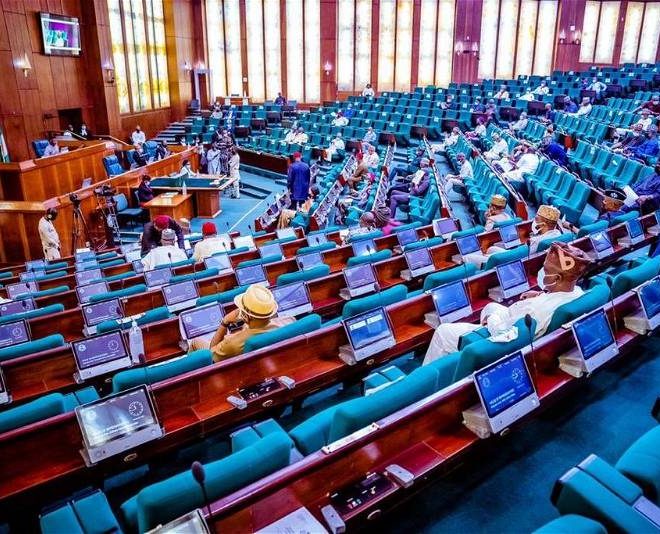On Friday, the House of Representatives unveiled plans to investigate syndicates involved in petroleum product racketeering as well as the status of over 23 NNPC depots and national pipeline networks across the country.
Chairman, House Committee on Petroleum Resources (Downstream), Hon. Ikenga Ugochinyere, disclosed this in Abuja while reading the communiqué issued after a meeting between the National Association of Road Transport Owners (NARTO) and the Petroleum Products Retail Outlets Owners Association of Nigeria (PETROAN).
According to him, the stakeholders ‘ meeting was organised to “find ways to ameliorate the sufferings of Nigerians in the face of subsidy removal, rising cost of living, inflation, instability of the exchange rate, insecurity, and other challenges that currently bedevil the nation.”
Hon. Ugochinyere, who read the communiqué, said that the stakeholders agreed to encourage “local refiners with licences to increase refining and affordable products, which will help to create more jobs and reduce pressure on our foreign exchange.
“The meeting resolved to commend the leadership of NARTO for calling off the strike, which has given room for resumed distribution of petroleum products and also commended the National Security Adviser, the Minister, and the NNPCL for their roles in the mediation to ensure that NARTO returns to the road.
“The Committee agreed with NARTO and PETROAN to find sustainable solutions to the present challenges facing the petroleum distribution and petrol outlet owners to avert any other strike or obstruction of the supply of the retail chain.
“The committee agreed with NARTO and PETROAN for an all-inclusive meeting with the leadership of the National Assembly, regulators, and other key stakeholders, including security agencies, to tackle issues of multiple charges, sharp practices, and the rising cost of transportation to help achieve a sustainable and affordable product distribution and pricing system.
“The Committee also agreed that because of the suffering retail and transport owners are going through as a result of lack of access to funding, to fast track the process of the legislative creation of the energy band and also a council on petroleum products distribution to eliminate these challenges and ensure energy stability, affordability, and affordability.
“The Committee also agreed to encourage local refiners with licences to increase refining and affordable products, which will help to create more jobs and reduce pressure on our foreign exchange.
“The committee also agreed to closely monitor the ongoing repair of our national refineries.
“The Committee also agreed with NARTO that we are going to investigate the issue of retail owners who pay for petroleum products and months after, they don’t get it, and the emergence of middlemen who now sell these products to the real petrol outlet owners, which is the reason why the price keeps rising.
“We also agreed to a stakeholders’ recommendation from NARTO and others to help in tackling some of the immediate and long-term needs in the industry to help ensure stability.
“We also agreed to look into the status of the over 23 NNPC depots and the national pipeline network and their status to ensure if all of them are working because you would all agree with me that if this deport and pipeline system is working, there will be no need to have pressure on our roads with issues of moving these products from the deports to the respective retail outlets.
“We are going to look into this situation and find out also why the concession and the contract that has been given for some of these pipelines have not been completed to ease the movement of petroleum products.
“The Committee also agreed to a legislative action to look into how to reduce the freight cost by ensuring the dredging of the seaport that can open vessel landing corridors in other sectors apart from Lagos, Warri, Port-Harcourt, Calabar, and so forth.
“So that the prices of product movement can be reduced while also reactivating the pipelines for petroleum product distribution and the inclusion of modern technology and a new system of monitoring to avert vandalism.
“Also, we agreed to consult further on the issue of amending the PIA to provide room for inclusion of stakeholders in the downstream sector petroleum distribution and retailing chain in the purview of NNPC so that they can be part of that retailing chain and be able to resolve challenges when they come up without us waiting for a warning strike before stakeholders can come together and start tackling it,” Hon. Ugochinyere noted.
